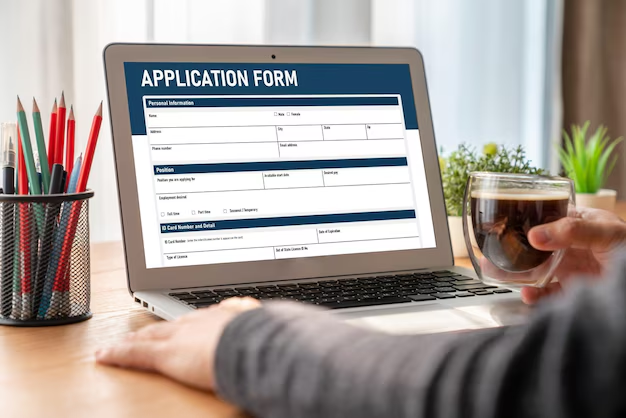Understanding How to Successfully Apply for WIC in Illinois
Navigating government support programs can sometimes feel daunting, but understanding the process can empower you to access valuable resources. One such program in Illinois is WIC, the Women, Infants, and Children program, designed to support the health and nutrition of low-income pregnant women, new mothers, and young children. If you're looking to apply for WIC in Illinois, this guide will walk you through the process step-by-step, ensuring you have the best chance at successful enrollment.
What is WIC, and Who Can Benefit?
Before diving into the application process, it's crucial to grasp what WIC offers and the benefits it provides.
Overview of WIC
The WIC program is a federal assistance initiative offering educational support, nutritional benefits, and healthcare referrals to eligible families. The aim is to ensure healthy growth and development for children and support prenatal and postnatal health for women.
Who Qualifies for WIC?
Eligibility is primarily based on income and the participant's nutritional risk as determined by healthcare professionals. To qualify, you must meet the following criteria:
- Residency in Illinois.
- Categorical eligibility, which means you are either pregnant, breastfeeding, postpartum, an infant, or a child under the age of five.
- Income guidelines that place your household at or below 185% of the federal poverty line.
- Nutritional risk, as identified by a qualified health professional.
Let's delve into how to determine your eligibility.
Determining Your Eligibility
Residency and Categorical Requirements
To apply, applicants must reside in Illinois. Proof of residency, such as a utility bill or lease agreement, will be required. Categorical eligibility needs verification through documentation like a doctor's note or birth certificate for infants and children.
Income Guidelines
Income eligibility is assessed against federal guidelines, which vary annually. Be prepared to present documentation like pay stubs or tax returns to verify your household income is within permissible limits.
Identifying Nutritional Risk
This involves undergoing a simple assessment by a healthcare professional, which is part of the WIC application process. During this assessment, professionals may evaluate dietary habits, medical history, or other health indicators.
How to Apply for WIC in Illinois
Having established your eligibility, here’s how to proceed with your application.
Initial Steps: Gathering Necessary Documents
Before heading to a WIC clinic, gather all relevant documents. This includes:
- Proof of identity for all household members applying. This could be a driver's license, birth certificate, or similar identification.
- Proof of residence such as a utility bill or rental lease.
- Income verification, typically recent pay stubs or a tax return.
- Health and dietary information, which can be obtained during your clinic visit.
Locating Your Nearest WIC Clinic
Find a WIC clinic nearby by visiting the Illinois Department of Human Services website or contacting them directly. Most areas have multiple clinics, making access more convenient.
Scheduling and Attending Your Appointment
Contact the clinic to schedule an appointment. This appointment will include your nutritional assessment and application processing. Ensure you bring all required documentation to the appointment.
When attending the appointment, you'll meet with a WIC staff member who will verify your documents and guide you through the application process, including conducting a brief health and nutrition assessment.
Receiving Your Benefits
Once approved, you will receive an Illinois Link card, which functions like a debit card loaded with your monthly WIC benefits. Here's how to make the most of your benefits.
Understanding Your WIC Benefits
WIC benefits typically include:
- Nutritional food packages tailored to your or your child’s needs.
- Nutrition education to help maintain healthy eating habits.
- Healthcare referrals to support additional health needs.
How to Use your WIC Benefits
Use the Link card at authorized retailers to purchase approved WIC foods. Familiarize yourself with the WIC food list provided during your appointment.
Maximizing Your Benefits
Take advantage of nutritional counseling and educational sessions offered through the WIC program. These programs are designed to help you make the most of your food benefits and ensure balanced nutrition for your family.
Common Questions About WIC Enrollment in Illinois
What if I Have Additional Questions?
WIC staff at your local clinic can answer any specific concerns. Many resources are also available online to address common questions.
How Often Do I Need to Reapply?
Generally, WIC certification periods last for six months to a year. Recertification involves a similar process to initial application, focusing primarily on updating any changes in income or health.
Can I Work and Still Qualify for WIC?
Yes, working families can qualify for WIC as long as the household income meets the guidelines. Part-time employment or income from multiple sources will all be considered.
What Should I Do If My Application is Denied?
If your application is denied, review the specific reasons with WIC staff. Often, applications can be adjusted and resubmitted once required documentation or missing information is provided.
Summary of Key Steps to Apply for WIC in Illinois
Here’s a quick guide to streamline your WIC application process:
- 📝 Determine Eligibility: Check residency, categorical, income, and nutritional risk criteria.
- 📂 Prepare Documentation: Gather IDs, income proof, and residency documentation.
- 📞 Schedule Appointment: Book a visit to your local WIC clinic.
- 🗂 Attend Appointment: Present documents, undergo a brief health screening, and complete your application.
- 💳 Receive and Use Benefits: Get your benefits card and understand how to use it effectively at authorized retailers.
- 🔄 Recertification: Be prepared to recertify annually or semi-annually.
By understanding these steps, you can confidently navigate and benefit from the WIC program in Illinois, supporting the health of your family now and into the future. Remember, the WIC program is not just about providing food; it’s a robust support system that offers invaluable educational resources and healthcare referrals. Embrace this opportunity to ensure the wellbeing of you and your family.

